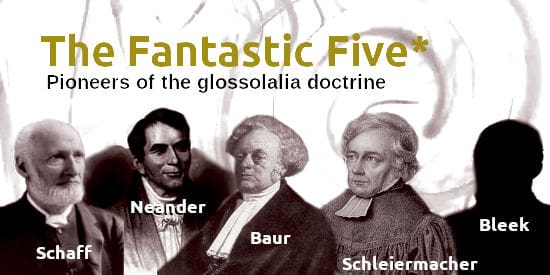To find out if the words ecstasy or glossolalia existed before the 1800s and how these terms have developed over time.
As described previously in A History of Glossolalia: Origins, it was approximately 1830 that the introduction of tongues as glossolalia first occurred in German religious circles, but it was not universal. Neither was the concept found in the realm of English works until Farrar introduced it in 1879. The previous article cited tertiary source materials with few references to primary and secondary ones.
A further examination of the primary, secondary, and additional tertiary sourcebooks is required to substantiate the addition of glossolalia as a tongues doctrine after 1879. Indeed, after careful review of such materials, this was found to be true. The Gift of Tongues Project likes to substantiate all claims. Therefore, the rest of the document is for providing the actual evidence. The article then goes one step further to document how this influence affects us today.
